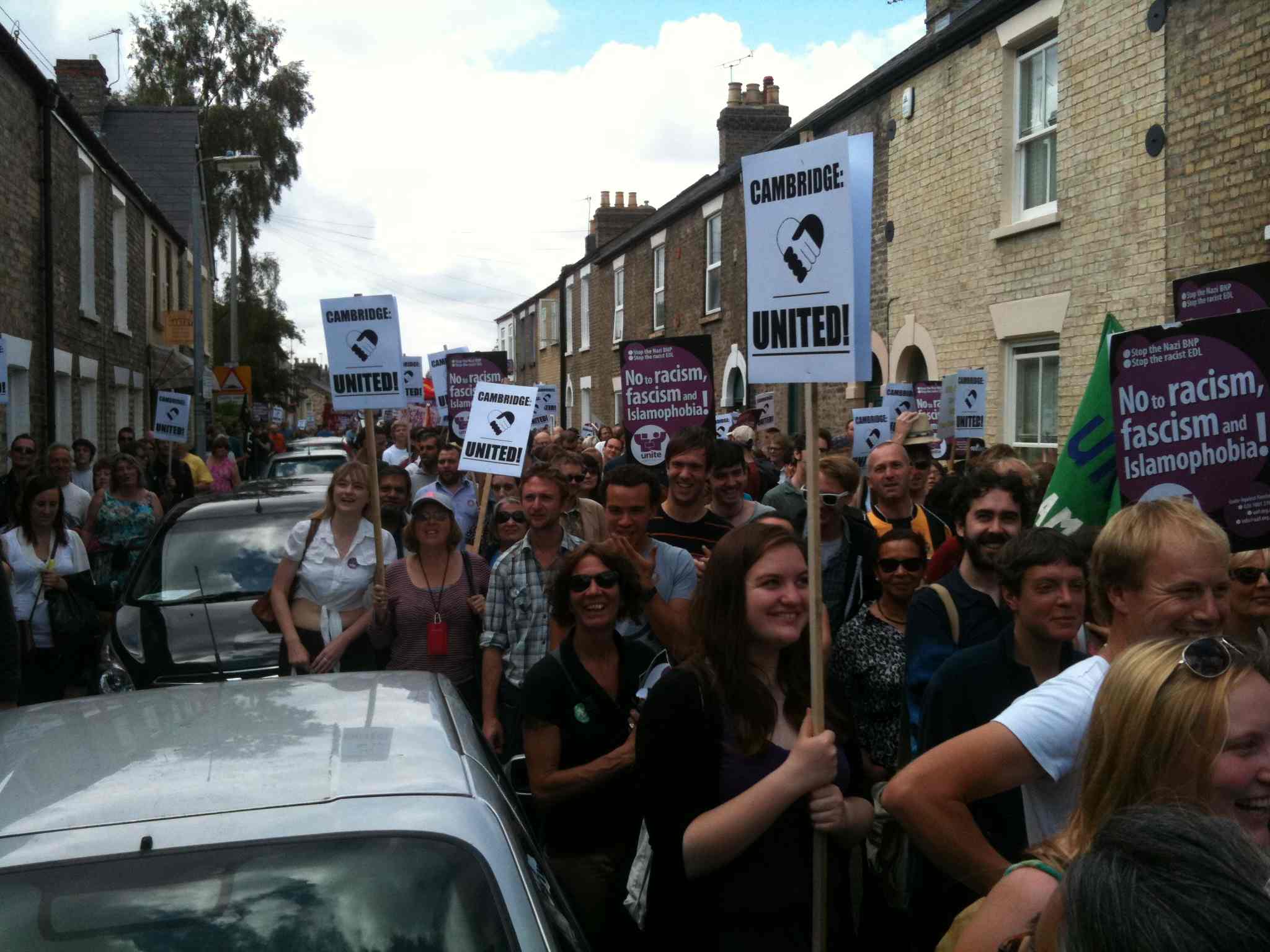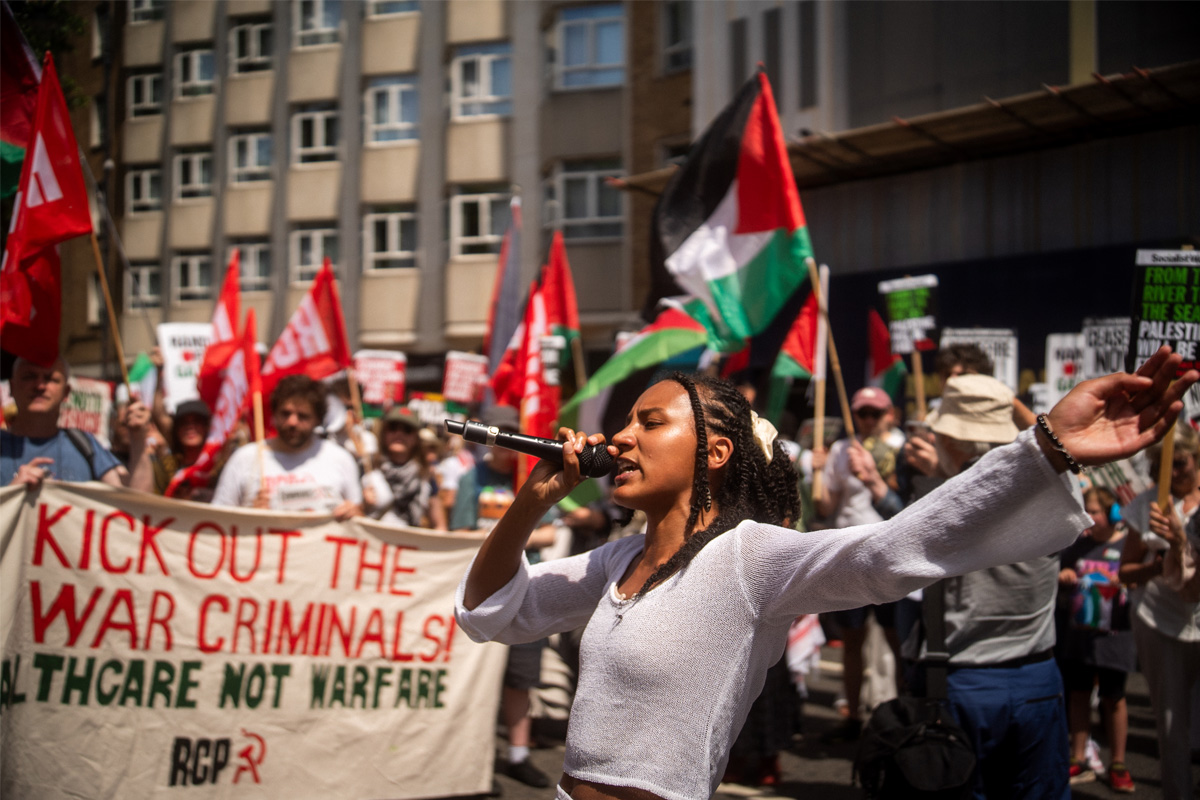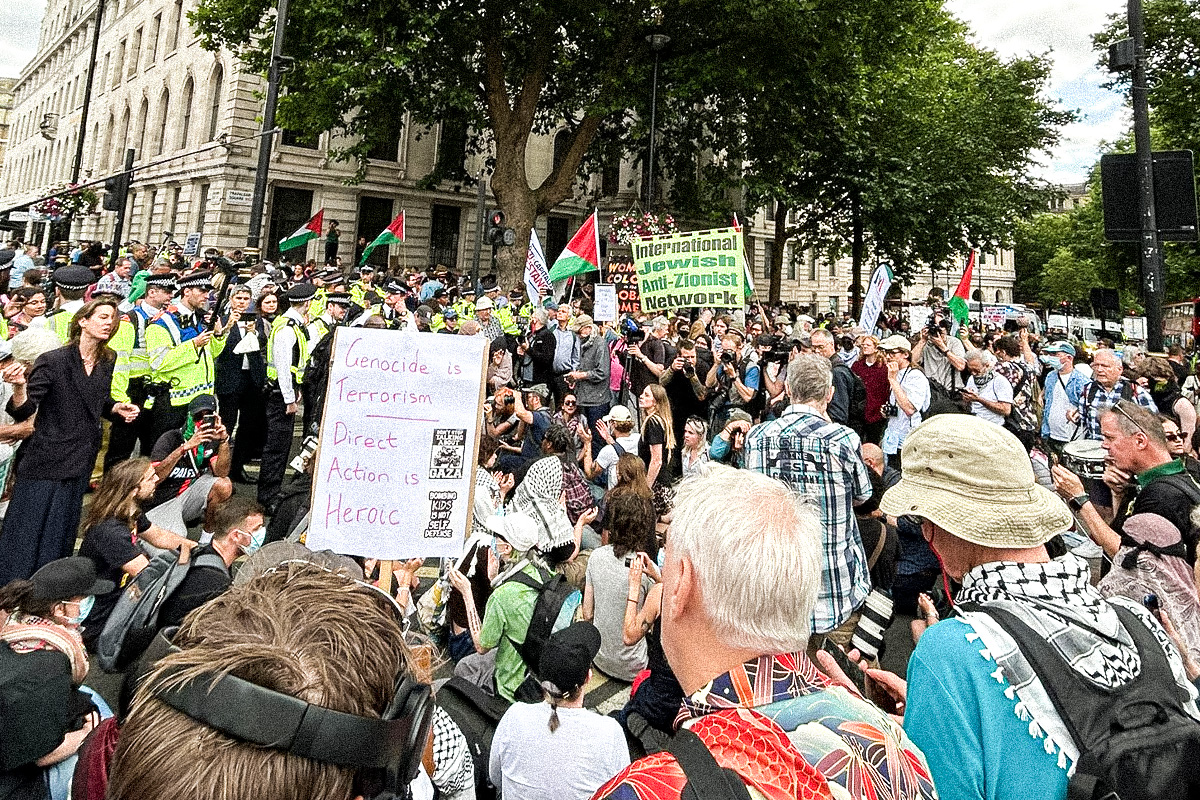Saturday the 9th of July saw the arrival of the EDL (English Defence
League) to the centre of Cambridge to protest against the proposal to
build a new mosque on Mill Road, a vibrant and multi-cultural part of
the city. The events in Cambridge were part of a national day of action
by the EDL that saw around 150 members of the EDL march through Plymouth
only to find them met by around 300 anti-fascist demonstrators,
alongside a demonstration in Middlesbrough that saw around 200 EDL
protestors met by 400 anti-fascists and a demonstration in Halifax that
numbered around 450 EDL demonstrators and 200 anti-fascists. Various
other EDL divisions were also planning on marching through Liverpool,
Dagenham and Derby however these marches were cancelled due to the high
level of opposition by the local community.
Saturday the 9th of July saw the arrival of the EDL (English Defence League) to the centre of Cambridge to protest against the proposal to build a new mosque on Mill Road, a vibrant and multi-cultural part of the city. The events in Cambridge were part of a national day of action by the EDL that saw around 150 members of the EDL march through Plymouth only to find them met by around 300 anti-fascist demonstrators, alongside a demonstration in Middlesbrough that saw around 200 EDL protestors met by 400 anti-fascists and a demonstration in Halifax that numbered around 450 EDL demonstrators and 200 anti-fascists. Various other EDL divisions were also planning on marching through Liverpool, Dagenham and Derby however these marches were cancelled due to the high level of opposition by the local community.
These marches come only a week after the first coordinated strike action in years by the trade union movement, and the numbers on the anti-EDL march were comparable to the march that passed through central Cambridge on 30th June. These demonstrations show a growing discontent within the ranks of society, which in turn is a reflection of the deepening crisis of capitalism. As Lenin once commented, “Fascism is capitalism in decay”, and as the capitalism enters its death agony, it continues to throw up small fascist gangs that seek to intimidate religious groups, ethnic groups, and the Labour movement. The counter-protest in Cambridge acted as a reminder to the Labour movement of what was possible when people stood united against a common enemy on questions of concrete political tactics.
In the run up to the demonstration a meeting was held in a local church hall, which had a good attendance of around 60 people. The leader of the labour group on the city council Lewis Herbert spoke at the meeting announcing that all Green and Labour councillors had signed a unity statement opposing the EDL and would be attending the demonstration on the day.
Cambridge put forward a marvellous display of unity and solidarity with a march and counter demonstration of around the 1,500 mark compared to the 200 people that the EDL could only just muster on the day. The day started at 11am with around 400 anti-EDL protestors in the central market square in Cambridge. Numbers began to quickly swell to around 500 as the departure time for the march neared. As the march began to form, members of the public joined the demonstration, pulled into the movement by the music and chanting of “Off our streets” and “Cambridge united will never be defeated” – a reference to the EDL’s attempts to tarnish the name of the local football club.
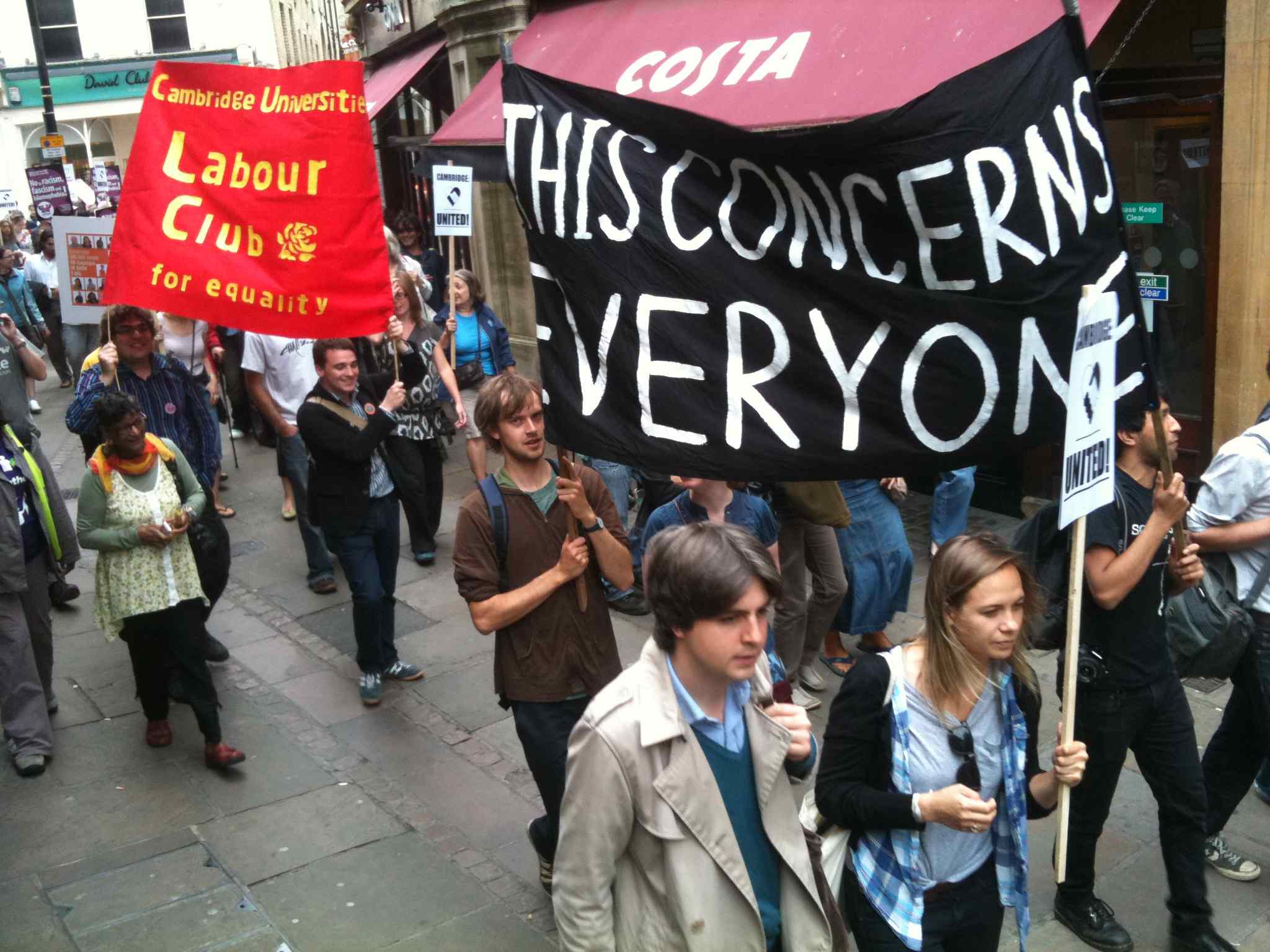 The day also saw the return of many students to the streets, ranging from school students, sixth formers, and university students – all of whom had fought their own battles over the last year, ranging from the hike in tuition fees and the proposal to cut the educational maintenance allowance – all there to show an act of solidarity to the Muslim community and the Labour movement in the same way that they did on the June 30th strike day, and in effect handing over the baton of struggle from the student movement to the Labour movement, forward to the industrial struggles that lie ahead.
The day also saw the return of many students to the streets, ranging from school students, sixth formers, and university students – all of whom had fought their own battles over the last year, ranging from the hike in tuition fees and the proposal to cut the educational maintenance allowance – all there to show an act of solidarity to the Muslim community and the Labour movement in the same way that they did on the June 30th strike day, and in effect handing over the baton of struggle from the student movement to the Labour movement, forward to the industrial struggles that lie ahead.
The numbers swelled as the march progressed, and as the protest arrived at Mill Road – the heart of Cambridge’s Asian and Muslim community – the marchers were met by shop-keepers and resident’s cheering from the pavements and offering free bottles of water, samosas, and baklava to the protestors in an act of solidarity for helping to defend the community against the threat of the EDL. This is in stark contrast to previous era, when layers of society such as shop keepers and small business owners would have formed the class basis for fascism. This is a further demonstration of the increasing proletarianisation that has taken place and is still taking place within society.
The efforts of the Labour movement were in stark contrast to the feeble and chaotic attempts of the EDL to pose any real threat to the local community. In utter desperation to pick a fight with somebody, they resorted to fighting amongst themselves, resulting in a number of arrests.
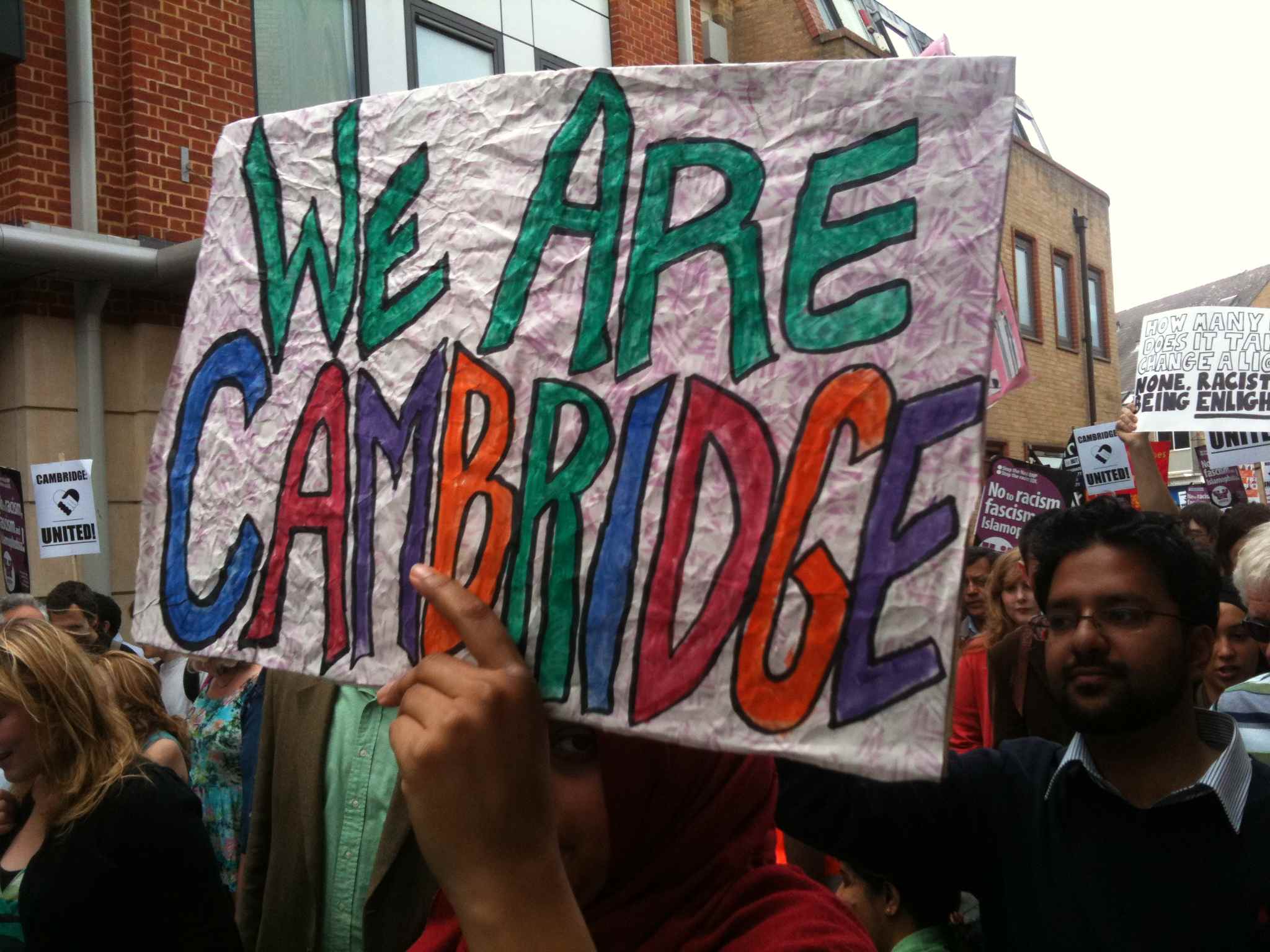 Only the might of the organised working class can deal with the threat of these fascist gangs. This means the need to mobilise the full force of the Labour movement behind any counter demonstration and march. In concrete terms, this means the support of the local trades council and various union branches in conjunction with the support of the local Labour party.
Only the might of the organised working class can deal with the threat of these fascist gangs. This means the need to mobilise the full force of the Labour movement behind any counter demonstration and march. In concrete terms, this means the support of the local trades council and various union branches in conjunction with the support of the local Labour party.
The threat of a return to the grip that fascism had in the 1930’s Europe appears unlikely these days, due to the fact that the class basis for fascism no longer exists. In the past, the forces of reaction could rely upon middle-class layers such as students and civil servants. Nowadays we see that it is precisely these layers that are at the forefront of the class struggle and the movements against austerity. As a result, the small fascist gangs such as the EDL are forced to rely solely upon the lumpen, hooligan elements of society.
Last year, on Sunday 20th June 2010, the EDL attempted to march through Tower Hamlets in the East End of London. They were, however, forced to abandon their attempt when a 5,000 strong counter demonstration was proposed to confront them. They are, however, attempting to reclaim lost ground by calling another march through Tower Hamlets on Saturday the 3rd of September 2011. The Labour movement must be prepared and organised, ready to face these reactionary elements of society.

